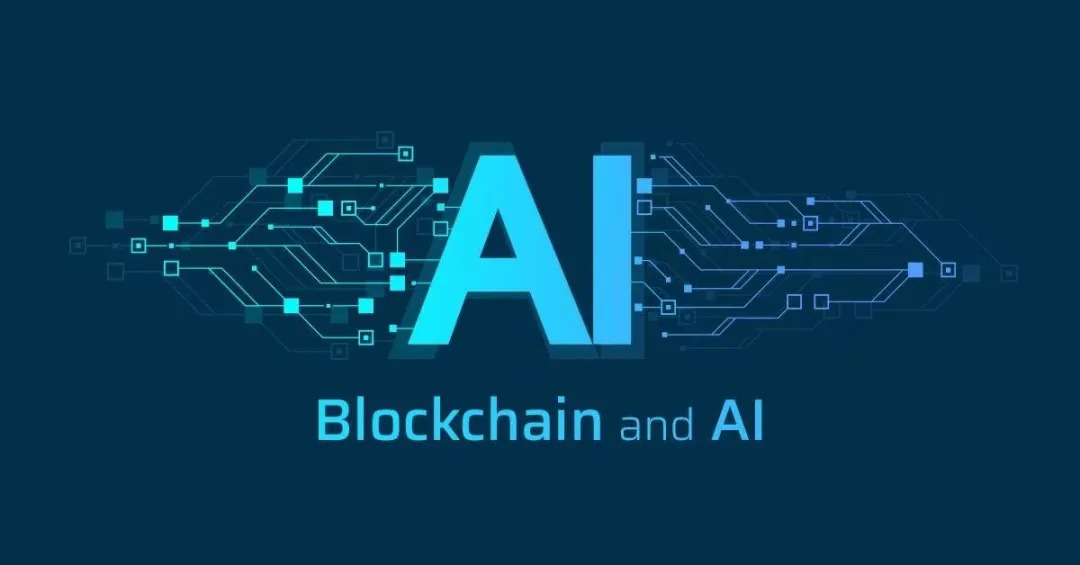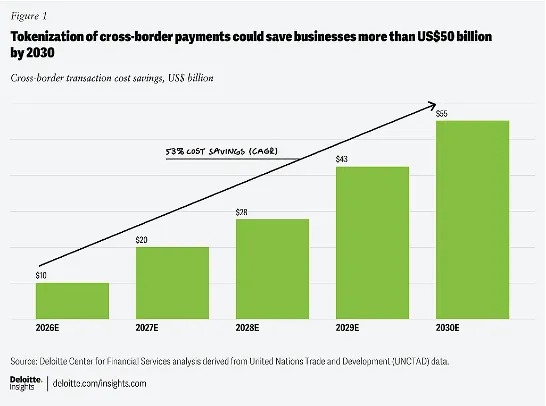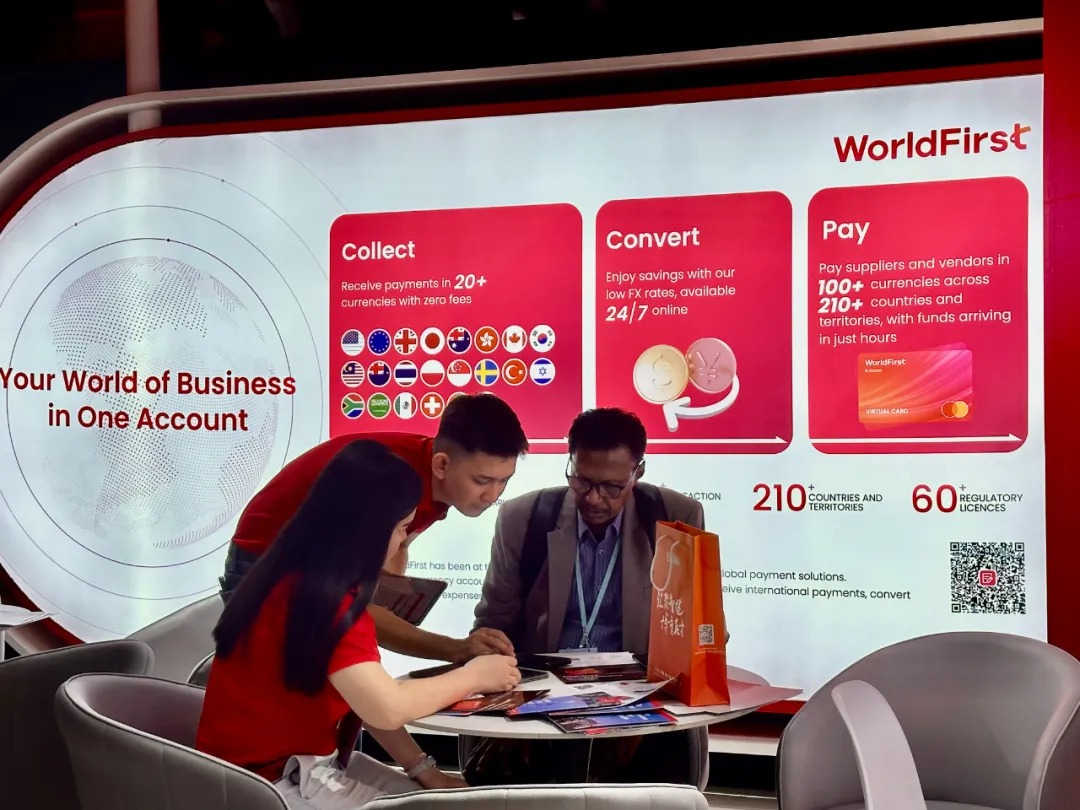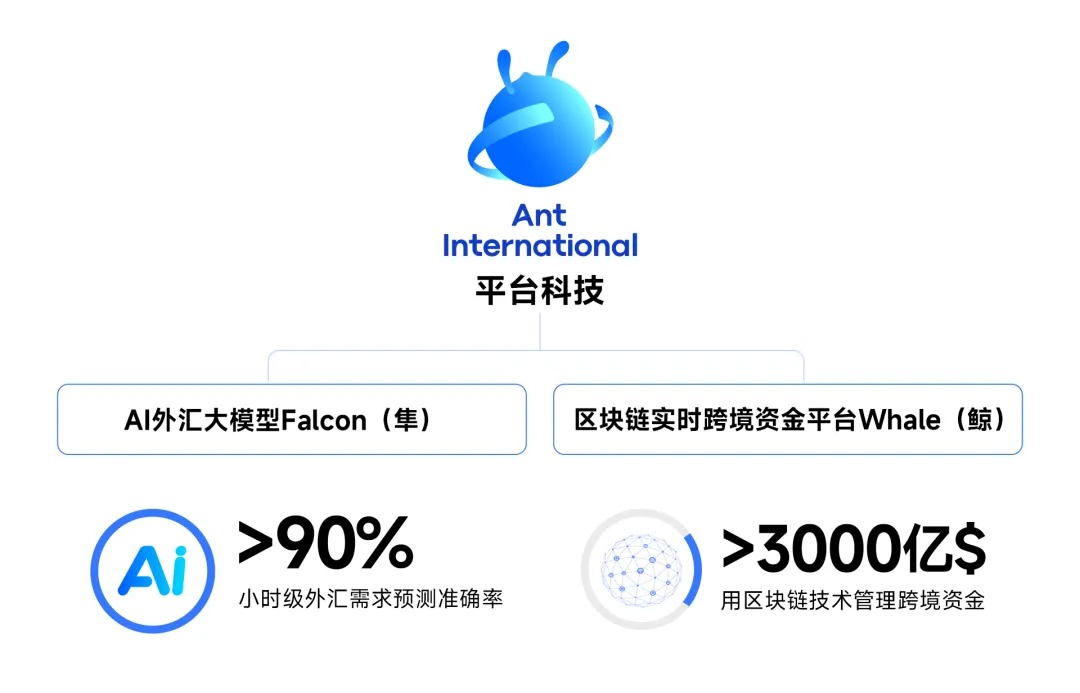Blockchain and AI technologies are fundamentally changing the way funds, information, and businesses connect within economies.
Written by: Deep Tide TechFlow

Since 2025, the digital asset sector has witnessed a series of milestone events: In March, the U.S. Senate passed the "GENIUS Act" with a high vote; in May and June, Hong Kong released the "Stablecoin Regulations" and the "Digital Asset Declaration," respectively. Several giants announced their plans for stablecoins, with Circle leading the way in the market, creating a surge in market sentiment.
However, as revealed by the rise and fall of internet companies in the 2000s, digital innovations that can transcend cycles must achieve large-scale application in rich real-world scenarios beyond mere concepts and declarations.
In fact, the answer regarding stablecoins is already apparent. In early 2024, SpaceX revealed in a podcast that to overcome cross-border settlement challenges, its Starlink has begun using the stablecoin payment platform Bridge for global fund settlements. This news sent shockwaves through the industry, subsequently leading to the acquisition of Bridge by U.S. payment giant Stripe for over $1 billion.
The global fund clearing and allocation for enterprises is the anchor point for the sustainable development of stablecoins and the entire digital asset industry. In June, media reports disclosed that Ant International plans to apply for stablecoin issuance licenses in Hong Kong, Singapore, and Europe. In response, Ant International mentioned: "We are accelerating investments and expanding collaborations in global treasury management, integrating AI, blockchain, and stablecoin innovations into real and reliable large-scale applications."
On July 3, as part of the Monetary Authority of Singapore's Project Guardian innovation initiative, Ant International, as a co-leader of the foreign exchange working group, jointly launched the industry framework standard "Application of Tokenized Deposits in Transaction Banking" with the International Swaps and Derivatives Association. It is estimated that this framework could reduce cross-border transaction costs by 12.5%, saving enterprises over $50 billion by 2030.
The actions of the industry and regulators indicate that the future of the stablecoin and blockchain finance industry will not be determined by speculative market hot money, but by the rapid unfolding of a corporate fund management revolution behind it. The vast market of "Treasury Tech" will become the battleground for global fintech.
Fintech: The Decisive Battle for Treasury Tech
For a long time, treasury management has been a challenge that every enterprise must face in global operations. Despite the enormous demand, it has been hindered by outdated systems and rigid processes, as well as the complexities of risk management, becoming a "digital innovation island," much like a hidden gold mine waiting to be excavated.
The difficulties are concentrated in two areas. First, the cross-border payment process is complex, with high costs for cross-border transactions, and settlement delays leading to risks and losses. The infrastructure is highly centralized, with complex and lengthy processes, and compliance costs being passed on at every level. In the cross-border settlement chain, each intermediary charges transaction fees, settlement fees, and foreign exchange fees. Multiple compliance and verification procedures are disconnected, risk control technology applications are uneven, and the issue of settlement delays across countries and time zones is even more pronounced.
Second, there is exchange rate risk. Exchange rates fluctuate dramatically with international situations, while the need for diversified operations forces enterprises to enter emerging markets with weaker and more unstable currencies. Enterprises not only need to manage cash flows from a global network of trading partners to ensure smooth transactions in different currencies but also need to assess and monitor global working capital requirements.
For cross-border operating enterprises, anticipating and responding to foreign exchange needs is the cornerstone of cash flow management. Financial departments typically rely on historical data and simple trend analysis for forecasting, but these methods struggle to cope with market volatility, seasonal changes, and unexpected events. This forces enterprises to either maintain excessive safety buffer funds, leading to idle capital and lost returns, or frequently engage in emergency fund reallocations. According to industry data, unreasonable foreign exchange management strategies can lead to an average additional cost of 1.5%-3% for enterprises.
Caught in this dilemma are not only multinational platforms but also a large number of small and medium-sized enterprises in emerging markets. A Mexican company sourcing raw materials from Vietnam may need to go through four or more financial intermediaries: local Mexican bank - local Mexican foreign exchange institution - international agent bank A - international agent bank B - Vietnamese foreign exchange institution - local Vietnamese bank. Specific B2B transactions can take 3-7 days to settle, costing $14-$150 for every $1,000 transaction.

Analysis from Deloitte's Financial Services Center, based on data from the United Nations Conference on Trade and Development (UNCTAD), shows that by 2030, tokenization of cross-border payments could save enterprises over $50 billion in cross-border transaction costs. The vast and deep enterprise cross-border payment scenarios are precisely the market that Ant International is targeting.
Ant's Globalization: Moving Towards a New World of Enterprise Financial Services
In 2024, Ant Group restructured, and Ant International officially began independent operations. According to its official website, Ant International is headquartered in Singapore and provides cross-border digital payment, financial, and digital services to global merchants and financial institutions. Its four major business segments are: Global Integrated Wallet Portal Services (Alipay+), Global Merchant Payment Services (Antom), Global Enterprise Account Services (WorldFirst), and Scenario Financial Services (Bettr).
In 2018, Alipay sought "global koi." At that time, Ant's international business primarily served Chinese tourists going abroad and supported Chinese e-commerce platforms in expanding overseas. By 2024, these four business segments have expanded to facilitate the travel of global tourists and the online and offline global operations and growth of enterprises using fintech solutions. The target clients are more focused on enterprises and institutions with financial service needs such as cross-border payments and settlements, and the service industries have also expanded to e-commerce, digital entertainment, OTA, and more. It covers offline digital payments in over 70 markets, online e-commerce payments in 200 markets, providing over 100 settlement currencies and more than 300 payment methods.
For example, Ant International's WorldFirst (万里汇), known to cross-border e-commerce sellers, serves over 1.2 million small and medium-sized enterprises going abroad and became the world's largest digital account service provider for e-commerce SMEs last year. The merchant payment service Antom (安通) serves the largest e-commerce platforms, airlines, and digital entertainment companies in China and globally, being the largest payment provider for several international digital platforms in the Asia-Pacific region.

From Chinese cross-border sellers to overseas cross-border sellers, WorldFirst has become an indispensable payment tool for businesses of all sizes engaged in global trade.
Qualitative changes accompany quantitative changes. The rapid expansion of business scenarios has led to a leap in the scale of platform fund management. According to media reports, Ant International's total fund processing volume exceeded $1 trillion in 2024.
The manager of this vast flow of funds, the mysterious Platform Tech department, has also come to light. From 2020 to 2025, they quietly built a "secret garden" that integrates blockchain and AI, transitioning from internal fund management to external customer service. In 2024, Ant International announced the establishment of a new scenario financial services segment, with the platform technology department moving to the forefront, becoming a rapidly growing business pillar.
Blockchain and AI: A GPT Moment for Global Fund Management
In recent years, blockchain technology has fluctuated, finding the most ideal and mature business scenarios in global fund settlement. The shared ledger system provides a new solution for traditional cross-border settlement issues such as time zone differences, settlement delays, and liquidity dispersion, ushering cross-border payment settlements into an era of low-cost, scalable, and instant payments.
Taking Ant International's Alipay+ as an example, it provides cross-border payment technology services for e-wallets in multiple countries and regions. When Malaysian tourists use Alipay+ services to pay local merchants in Singapore with a Malaysian e-wallet, the blockchain-based real-time cross-border settlement system allows tourists, merchants, wallets, and the banks linked to their accounts to avoid delays and extra costs associated with traditional models.

Alipay+'s cross-border services enable more global tourists to use their hometown wallets for QR code payments abroad, bringing more business opportunities to global merchants.
This is why blockchain-based stablecoin settlement methods have attracted significant attention from global giants such as SpaceX, Walmart, and Amazon. Top investors in the digital asset field, such as a16z (Andreessen Horowitz), have even detailed in their investment notes the industries that should most utilize stablecoins for fund processing, ranging from e-commerce to transportation.
According to Deloitte's research, it is predicted that by 2030, this innovative payment method will reduce cross-border transaction costs by 12.5%, allowing enterprise clients to save over $50 billion cumulatively. Its transparent and immutable ledger characteristics also meet the mainstream financial industry's requirements for security and compliance.
In 2018, Ant International completed its first cross-border blockchain remittance in Hong Kong. Since 2020, several international banks have disclosed that they have begun collaborating with Ant International's blockchain cross-border settlement platform "Whale" to provide real-time fund management services for enterprise clients.
"Whale" supports interoperability with various tokenized assets issued by leading global banks and financial institutions, meaning enterprises can seamlessly allocate and manage funds between different financial institutions without going through traditional interbank settlement processes, while ensuring compliance with multiple institutions and jurisdictions. Settlement times have been reduced from traditional days to seconds, achieving true 24/7 operation, allowing enterprises to schedule and settle funds at any time, greatly enhancing fund turnover efficiency.
Ant International's platform technology head, Li Yue, revealed to the media that in 2024, one-third of Ant International's global transactions, amounting to over $300 billion, will be processed on-chain using blockchain technology.
If the Whale platform is the "highway" for enterprise cross-border fund management, providing a 24/7, real-time, and secure allocation channel, then this highway requires a special "smart navigation system" to guide enterprises on when, where, and how to allocate global foreign exchange funds to achieve optimal efficiency.

The AI foreign exchange demand forecasting model developed by Ant International is internally named "Falcon." It is based on the Transformer architecture and has nearly 2 billion specialized industry parameters. By integrating the latest time series forecasting algorithms, the TST demand model can predict a company's cash flow and foreign exchange exposure with hourly, daily, and weekly accuracy, covering cash flow forecasts for over 100 currencies at hourly and daily levels, with an accuracy rate exceeding 90%.
Based on these high-precision forecasts, the finance team can quickly identify potential funding needs and decide on corresponding action strategies. For example, in the aviation industry, which faces significant uncertainties related to exchange rates, fuel, and travel demand, foreign exchange cost savings can reach up to 60%.
The blockchain infrastructure provided by the Whale platform complements and enhances the AI forecasting capabilities of the TST model, together building an efficient, transparent, and intelligent global fund management ecosystem. "With the support of blockchain and AI, the daily workflows of corporate finance teams have undergone a revolutionary change. The financial decision-making model is genuinely transitioning from experience-driven to data-driven, marking a GPT moment in global fund management," said Li Yue.
“Ecosystem, Ecosystem, Ecosystem”
From blockchain to AI, new technologies excite the market while undergoing rigorous evaluations by regulators and mainstream financial institutions. Ant International actively participates in various innovative pilot programs in Singapore and Hong Kong, including two flagship sandbox programs for global digital asset regulation: the Monetary Authority of Singapore's Project Guardian and the Hong Kong Monetary Authority's Project Ensemble. In 2023, Ant Group became one of the first participants supporting the Hong Kong Monetary Authority's "Digital Hong Kong Dollar" pilot program, with its AlipayHK becoming a pilot retail use case for the digital Hong Kong dollar.
To maintain trust in the ecosystem, it is essential to withstand tests in compliance and security technology. Li Yue stated that the collaboration between the blockchain platform "Whale" and the time series Transformer (TST) AI model has built a comprehensive real-time enterprise fund management security system. Homomorphic encryption technology ensures secure information transmission, while privacy-preserving computation allows transaction parties to see only the occurrence of the transaction rather than detailed information. "Fund security, privacy security, and compliance security are the lifelines of fund management services. Investment in AI security technology must be proactive."

By actively engaging in regulatory innovation, Ant International aims to use Singapore and Hong Kong as strategic footholds to build a global enterprise fund management network. Since 2020, these two core fund management technology products from Ant International have gained recognition from more international financial institutions and have been widely applied in global commercial services. Citibank, HSBC, Standard Chartered Bank, Deutsche Bank, and BNP Paribas have begun to widely use the Whale blockchain platform in their global customer services. The AI foreign exchange forecasting model has started serving diverse scenarios such as banks, airlines, online travel, and e-commerce platforms.
In the vision and mission released in 2025, Ant International positions itself as a "Digital Partner" in the regulatory system and industry, rather than a "disruptor" like Stripe or Wise.
"We hope to be a technology connector in the continuously evolving financial system, a builder that makes the system more resilient and inclusive," explained Douglas Feigen, President of Ant International, in a media interview.
Behind the bustling corporate finance sector, blockchain and AI technologies are fundamentally changing the way funds, information, and businesses connect within economies.
That may be where the next wave begins.
免责声明:本文章仅代表作者个人观点,不代表本平台的立场和观点。本文章仅供信息分享,不构成对任何人的任何投资建议。用户与作者之间的任何争议,与本平台无关。如网页中刊载的文章或图片涉及侵权,请提供相关的权利证明和身份证明发送邮件到support@aicoin.com,本平台相关工作人员将会进行核查。




